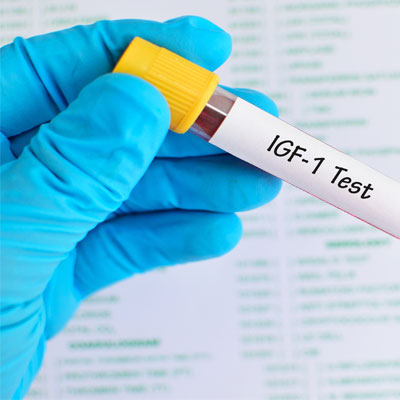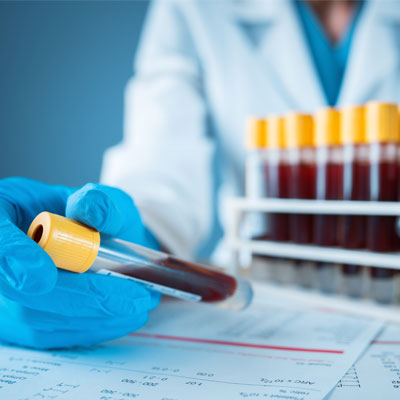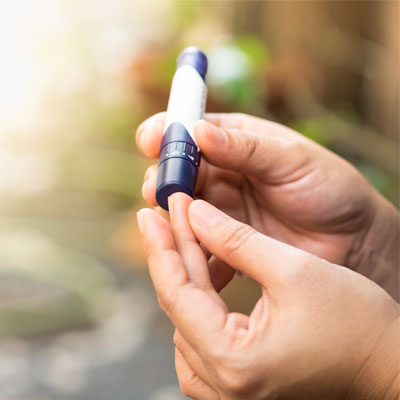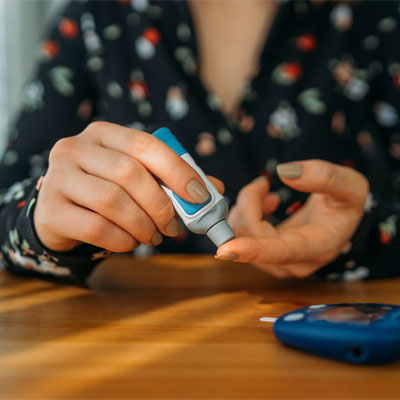Contents

IGF-1 gets its secretion signals from the amount of HGH that reaches the liver. Human growth hormone and IGF-1 help to maintain proper levels of glucose and insulin in the blood.
Adults who are deficient in HGH and IGF-1 often have increased levels of cortisol which often raises insulin and glucose levels.
One of the questions we are frequently asked is whether people with decreased levels of HGH and diabetes can receive treatment with human growth hormone therapy. The answer is yes, but with increased blood monitoring and supervision. As you will see, maintaining balanced HGH levels can help lower insulin levels and improve glucose uptake in tissue cells.
Is there an increased connection between low HGH and diabetes risk?
Yes, adults with growth hormone deficiency are more prone to the development of Trusted sourceLife doesn’t end with type 2 diabetes.American Diabetes AssociationGo to sourcetype 2 diabetes . This is partly due to HGH regulation of metabolism. The lower your HGH levels, the more likely you will gain weight. Being overweight increases the risk factors of developing high cholesterol, metabolic syndrome, type 2 diabetes, and many other health concerns.
Both type 1 and 2 diabetes have one thing in common – too much glucose or blood sugar. How they get there is a different story and explained in the sections below.
What to Know about HGH and Type 1 Diabetes
Doctors most often diagnose Trusted sourceLet’s fight type 1 diabetes together.American Diabetes AssociationGo to sourceType 1 diabetes in childhood or early adulthood. A shortage of insulin production by the pancreas signifies this type of diabetes. When you have low levels of HGH and diabetes type 1, not having enough insulin reach the liver can impact IGF-1 production. The result is a decrease in HGH functions in the body.
The body requires insulin to regulate how well the cells can pull in glucose to use for energy. Type 1 diabetes occurs because there is not enough insulin to stimulate this function. Without the signals from insulin, the cells cannot take in enough glucose, leaving it circulating in the bloodstream. The result is high blood sugar.
In the link between diabetes and HGH explained here, some people might argue for treatment with supplemental IGF-1 to improve HGH effectiveness. However, IGF-1 therapy often brings side effects to people with diabetes. Instead, the use of HGH for diabetes type 1 has proven a safer alternative. HGH will boost IGF-1 levels without the side effects.
A benefit of this is that HGH therapy can help improve glucose uptake in the cells.
HGH and Type 2 Diabetes
Type 2 diabetes is more associated with adulthood than childhood and may have genetic roots. You are considered at an increased risk of development if your parents or grandparents have type 2 diabetes.
The connection between deficient levels of HGH and diabetes type 2 occurs due to insulin resistance in the cells.
Why does this happen?
After you eat any form of carbohydrate, including sugars, the body digests it and processes it down into smaller molecules of glucose. These glucose molecules then enter the bloodstream, and when the pancreas senses an excess of glucose, it secretes more insulin. The role of the insulin is to push the glucose into waiting cells to provide energy. However, if you consume a diet high in carbohydrates and sugars, your cells will be full of glucose. The reject what the insulin is trying to push in. instead, the glucose and insulin continue to circulate in the bloodstream. The pancreas senses the glucose and secretes more insulin. Over time, your cells become resistant to the signals from the insulin. The body starts to turn that excess glucose into fat. Continually high levels of blood glucose can lead to type 2 diabetes.
How can HGH help diabetes type 2 adults?
Part of the reason for the benefits of HGH diabetes treatment is that growth hormone and IGF-1 help improve cellular uptake of glucose. Higher levels of HGH and IGF-1 also lower cortisol and insulin in the bloodstream. Boosting HGH levels also improves metabolism so that the body can use the triglycerides (fats) stored in the tissue cells for energy. As you start to lose weight, your HGH levels begin to improve further. Hormone balancing further extends to testosterone and estrogen levels. The body can then reach a state of homeostasis, and numerous systems begin to function at a higher rate.
The link between diabetes and HGH explained above should help shed some light on how HGH and IGF-1 impact insulin and glucose levels. If you still have additional questions or would like more information about hormone testing and treatment, please complete the short form on this page. You can also call our clinic for your confidential, no-cost consultation with one of our medical advisors.
- Paolo Beck-Peccoz, MD, Charlotte Hoybye, MD, PHD, Dr Robert Murray, Suat Simsek, MD, Markus Zabransky, Hichem Zouater, Prof. Dr. med. Günter K. Stalla
- Shin-Hye Kim, MD, PhD, Mi-Jung Park, MD, PhD
- Andrea F. Attanasio, MD, PhD, Heike Jung, Daojun Mo, Philippe Chanson, Roger Bouillon, MD, PhD, FRCP, Ken K. Y. Ho, Steven W.J. Lamberts, MD, PhD, David Clemmons, MD
- E. O. List, A. J. Palmer, D. E. Berryman, B. Bower, B. Kelder & J. J. Kopchick
No increased risk of glucose metabolism disorders in adults with growth hormone deficiency undergoing long-term treatment with biosimilar somatropin (Omnitrope®): data from an observational, longitudinal study.
Effects of growth hormone on glucose metabolism and insulin resistance in human
Prevalence and Incidence of Diabetes Mellitus in Adult Patients on Growth Hormone Replacement for Growth Hormone Deficiency: A Surveillance Database Analysis
Growth hormone improves body composition, fasting blood glucose, glucose tolerance and liver triacylglycerol in a mouse model of diet-induced obesity and type 2 diabetes






